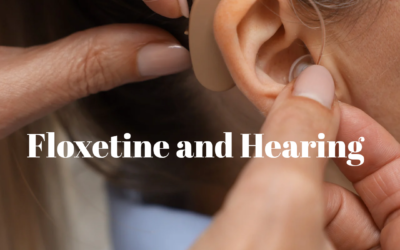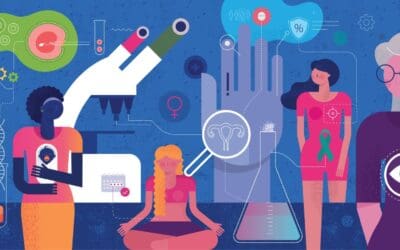Node Smith, ND
New Test to Determine CBT or Pharmaceutical Treatment for Optimal Efficacy
A new method for determining the course of conventional treatment of anxiety may be just around the corner. A research group at the University of Illinois at Chicago have developed a quick test that may be able to determine whether cognitive behavioral therapy (CBT) or pharmaceutical treatment will likely be more effective.1
Anxious Americans Account for the most Common Psychiatric Complaint
Anxiety is the most common psychiatric complaint in the United States. It is estimated that 44 million Americans suffer from the condition annually. While anxiety, or anxious feelings, is a normal experience in everyone’s life, some experience out of the ordinary bouts of extreme or misplaced worry, fear, or panic that severely impact daily life. Anxiety is often difficult to treat, and patients often cycle through many doctors before finding a treatment that works.
SSRIs and CBT Have Reigned Supreme in Conventional Category for Treatment
From a conventional standpoint, selective serotonin reuptake inhibitors (SSRIs) and CBT are often considered the first-line treatment for anxiety. SSRI’s are thought to increase the time during which serotonin acts on the brain, and CBT helps change the dysfunctional thought patterns which may be leading to the anxiety. Both of these treatments are considered on par in terms of efficacy, though it is a mystery who will respond to which treatment. The development of test that could flush out this mystery would be very beneficial clinically.
Error-Related Negativity (ERN)
Stephanie Gorka, assistant professor of psychiatry in the UIC College of Medicine, has found that there is more electrical activity in the brain after committing an error, in people with anxiety. This is called “error-related negativity,” or ERN. “People with anxiety disorders tend to show an exaggerated neural response to their own mistakes,” said Gorka.
The degree of ERN a patient experiences can be determined using electroencephalography (EEG). A bigger ERN signal registers an enhanced neural response after a mistake is made.
Research Study Included 60 Adult Participants with Anxiety
The research study conducted by Gorka took 60 adult participants with anxiety and 26 healthy controls. ERN was measured in each individual and participants with anxiety were given either a 12-week course of CBT or 12 weeks of SSRI treatment. They were all retested for ERN response at the end of the 12 weeks.
Results of the Study
Gorka found that when CBT was received by those with an enhanced ERN response that there was a much greater reduction in anxiety than individuals who received SSRIs. In fact, Gorka reports that individuals who were given SSRIs actually showed an increased ERN.
The conclusion of the study is that ERN may help predict which patients will respond better to CBT.
Measuring ERN
Measuring ERN can be done with minimally invasive and cost-effective equipment. This means that in time it could be used as a point of contact determination of conventional treatment of anxiety. This could keep many people from the associated side effects of SSRIs.
Source:
Image Copyright: <a href=’https://www.123rf.com/profile_vadimgozhda’>vadimgozhda / 123RF Stock Photo</a>
 Node Smith, ND, is a naturopathic physician in Portland, OR and associate editor for NDNR. He has been instrumental in maintaining a firm connection to the philosophy and heritage of naturopathic medicine among the next generation of docs. He helped found the first multi-generational experiential retreat, which brings elders, alumni, and students together for a weekend camp-out where naturopathic medicine and medical philosophy are experienced in nature. Four years ago he helped found the non-profit, Association for Naturopathic ReVitalization (ANR), for which he serves as the board chairman. ANR has a mission to inspire health practitioners to embody the naturopathic principles through experiential education. Node also has a firm belief that the next era of naturopathic medicine will see a resurgence of in-patient facilities which use fasting, earthing, hydrotherapy and homeopathy to bring people back from chronic diseases of modern living; he is involved in numerous conversations and projects to bring about this vision.
Node Smith, ND, is a naturopathic physician in Portland, OR and associate editor for NDNR. He has been instrumental in maintaining a firm connection to the philosophy and heritage of naturopathic medicine among the next generation of docs. He helped found the first multi-generational experiential retreat, which brings elders, alumni, and students together for a weekend camp-out where naturopathic medicine and medical philosophy are experienced in nature. Four years ago he helped found the non-profit, Association for Naturopathic ReVitalization (ANR), for which he serves as the board chairman. ANR has a mission to inspire health practitioners to embody the naturopathic principles through experiential education. Node also has a firm belief that the next era of naturopathic medicine will see a resurgence of in-patient facilities which use fasting, earthing, hydrotherapy and homeopathy to bring people back from chronic diseases of modern living; he is involved in numerous conversations and projects to bring about this vision.





















